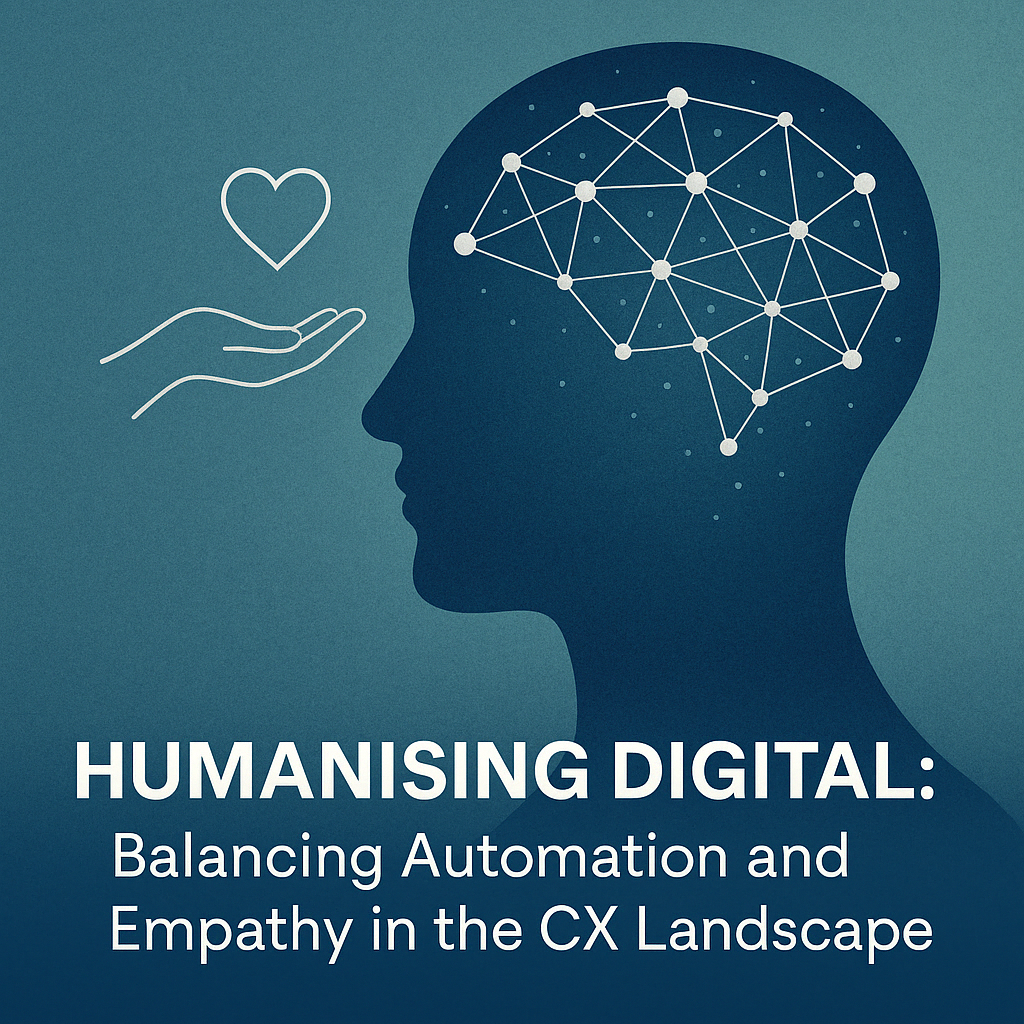In a world increasingly shaped by algorithms and automation, the question for today’s customer experience leaders isn’t whether to embrace technology—it’s how to do so without losing the human connection at the heart of exceptional service.
Digital transformation has brought speed, efficiency and scalability. But it has also ushered in new challenges: robotic responses, transactional interactions and the frustration customers feel when they can’t reach a real person. In this evolving landscape, empathy is no longer a soft skill—it’s a strategic imperative.
As Tim Berners-Lee, the inventor of the World Wide Web, wisely said:
“Technology should serve humanity, not replace it.”
Why Human-Centred CX Matters
At CGA, we believe that the most powerful digital experiences are not just smart—they are emotional. That’s why humanising the digital journey isn’t just a trend; it’s a necessity. Empathy, when embedded into design, development and delivery, transforms both the user experience and the internal culture of an organisation.
Research by the Nielsen Norman Group confirms this. Interfaces that prioritise empathy, usability and accessibility significantly outperform their counterparts, leading to better engagement, improved satisfaction and stronger customer retention. And it’s not just about interface design—it’s about intent. When brands deeply understand their audiences’ goals, values and pain points, they create interactions that feel meaningful and memorable.
Take Airbnb, for example. Their focus on trust, inclusivity and user needs—right down to features like accessibility filters—shows what’s possible when tech is designed for people first. It’s not just good UX. It’s brand loyalty, built one meaningful connection at a time.
Dudley Building Society: From Insight to Impact
One example of humanising digital through empathy-driven design is our work with Dudley Building Society. A well-respected organisation with deep roots in its community, Dudley Building Society recognised the need to evolve. With a new leadership team and a vision to become more customer-centric, they approached CGA for support.
We began by listening—deeply. Through an in-depth online community of Dudley members, we explored their expectations, preferences and values. The insight was clear: customers wanted a physical presence on the high street and personalised service. This wasn’t a rejection of technology—it was a call for balance. Members valued convenience but didn’t want to lose the connection that had defined their relationship with the building society.
Our work helped Dudley Building Society define a relevant, human-centred proposition and re-shape their business around the experience they aspired to deliver.
Empathy as a Strategic Tool
Humanising digital isn’t about resisting progress. It’s about keeping people in the loop. It’s about recognising that empathy is a development tool, not a soft skill to be tacked on at the end.
At CGA, we’ve embedded this philosophy into our own practice through the CGA Empathy Lab®. This immersive training experience gives teams the chance to walk in their customers’ shoes—literally. From self-awareness exercises to situational VR simulations, participants gain real-world insight into how their behaviour, tone and decisions impact customer emotions and outcomes.
Empathy training isn’t just for frontline staff. It’s for leaders too—because people-centred leadership drives people-centred cultures. The result? Greater employee satisfaction, reduced churn and a shared sense of purpose. When employees feel confident and valued, they create better experiences—for everyone.
A Connected Future
Digital experiences that feel human don’t just happen. They are designed with intention, fuelled by insight and delivered with empathy.
At CGA, we believe that humanising digital is the key to future-proofing customer relationships. It’s not a rejection of AI or automation—it’s using technology to amplify, not replace, the human touch.
If you’re ready to humanise your customer experience, we’d love to show you how. Start with empathy. Start with us.

